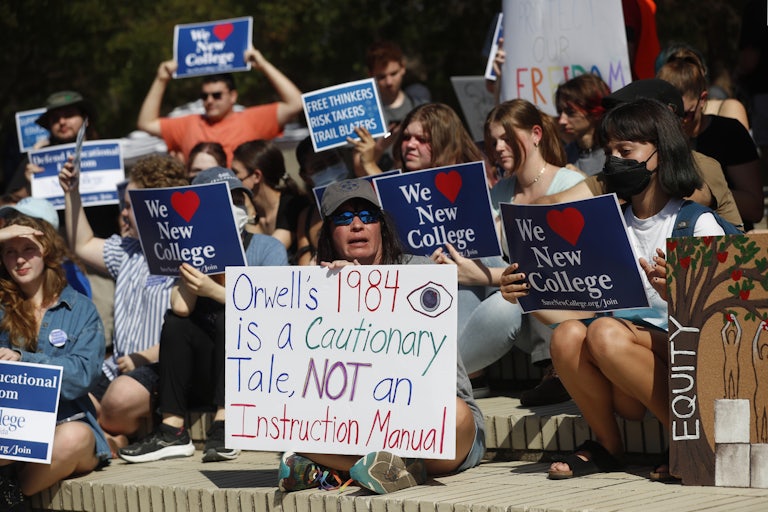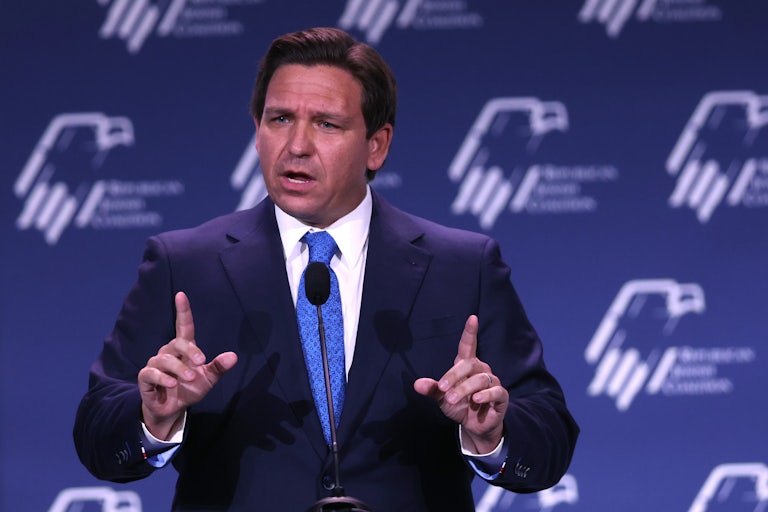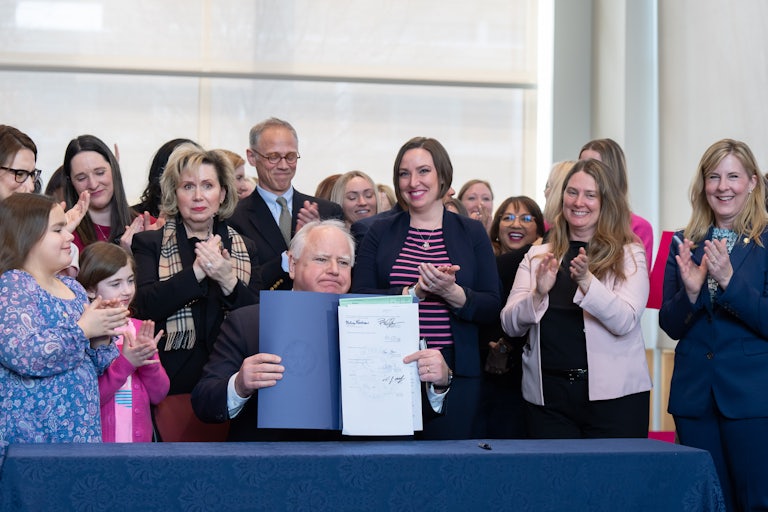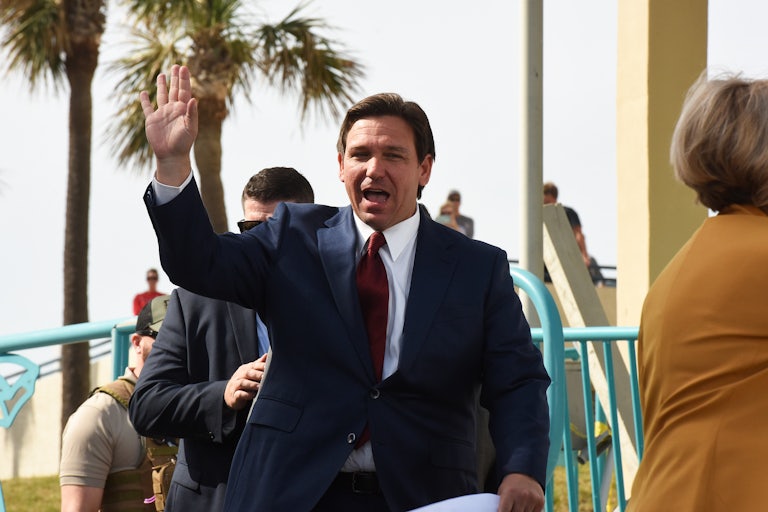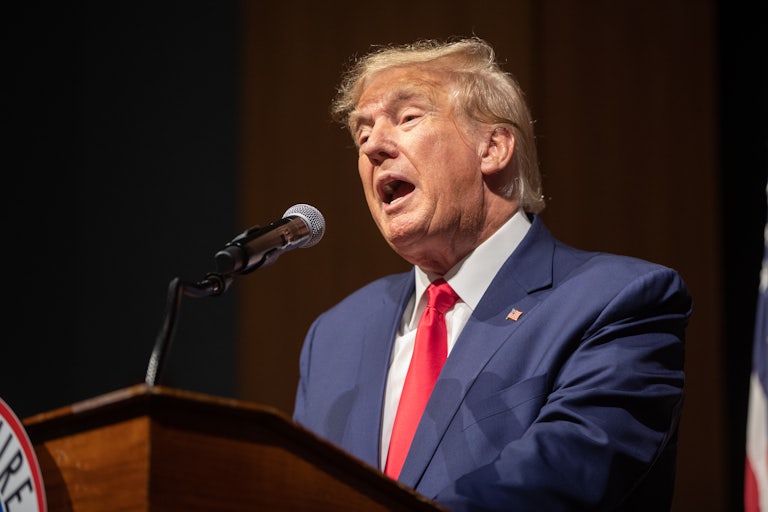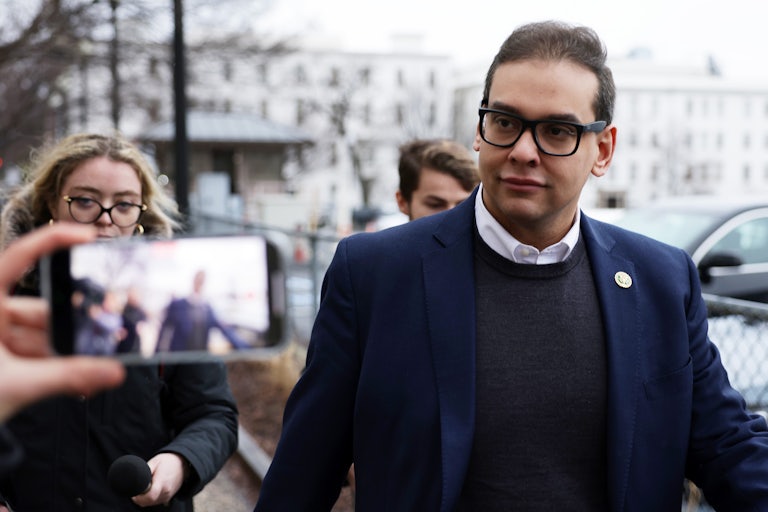Federal Reserve Hikes Interest Rates Up 0.25 Percent, Smallest Increase in Almost a Year
Here’s what exactly the Fed Reserve rate hike means for you.
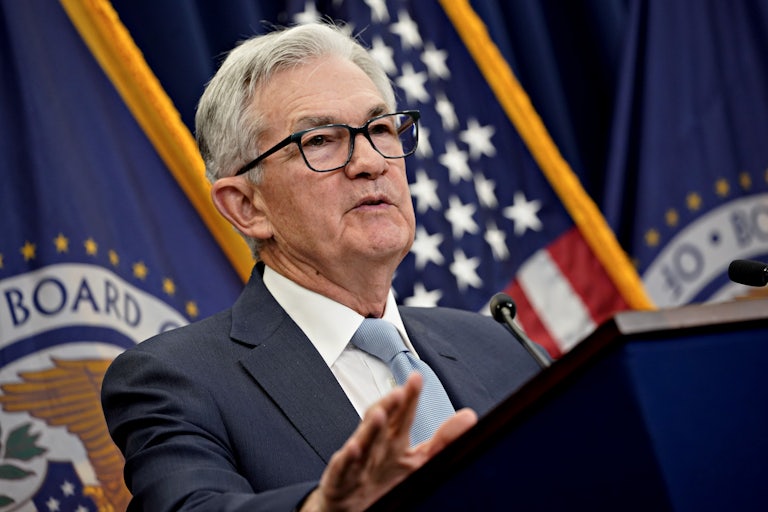
The Federal Reserve announced an interest rate hike of 0.25 percent Wednesday, the smallest increase since it began ramping rates up in March.
Inflation has fallen slowly but steadily over the past six months, particularly from October to December. The Fed has been on a tear to get interest rates high enough to discourage people from spending money, slowing the economy down in turn. The central bank only began easing its rate hikes in December. The risk is that growth will slow while prices and borrowing rates stay high, sending the economy into a recession.
“Shifting to a slower pace will better allow the committee to assess the economy’s progress toward our goals as we determine the extent of future increases that will be required to attain a sufficiently restrictive stance,” Fed Chair Jerome Powell told a press conference. “While recent developments are encouraging, we will need substantially more evidence to be confident that inflation is on a sustained downward path.”
Goods prices are generally falling, and the unemployment rate in December was 3.468, the lowest in 50 years—all indicators that the Fed’s previous rate hikes are working as intended. Ian Shepherdson, the chief economist at Pantheon Economics, warned Tuesday that the central bank shouldn’t raise interest rates anymore lest they go too far.
The Fed should not hike again. Their work is done. They have suppressed inflation expectations; the Covid distortions to rents and margins are working through and will drive inflation down; and the labor market is re-normalizing without a surge in unemployment. pic.twitter.com/LtpzLqRPL8
— Ian Shepherdson (@IanShepherdson) January 31, 2023
Dean Baker, senior economist at the Center for Economic Policy and Research, answered five questions about what the latest rate hike means going forward.
1. What has changed in recent months that gives the Fed enough confidence to hike rates by the smallest amount in almost a year?
“The economy and inflation have both slowed sharply,” Baker told The New Republic, describing the initial 0.75 percent rate hikes as a “bit of a panic.”
Indicators such as the consumer price index have decreased in recent months, a sign that the economy is slowing and inflation is finally easing up a bit. Baker suggested that Wednesday’s small rate hike is more to “demonstrate [the Fed’s] commitment to fighting inflation.”
2. What can consumers expect from a 0.25 percent rate increase?
Since the rate increase is so small, it’s unlikely to have much effect on the economy, according to Baker. “Since it was widely anticipated, the impact has already been incorporated into the rate structure.”
Now many economists are hopeful the Fed will take a step back and be more reactive with future rate increases, instead of proactive.
3. What can we expect from the Fed going forward?
In a statement, the central bank predicted that “ongoing increases … will be appropriate in order to attain a stance of monetary policy that is sufficiently restrictive to return inflation to 2 percent.”
Monetary tightening measures often have delayed effects, which the policy-setting Federal Open Market Committee said it would take into account when deciding on whether to increase rate hikes in the future.
Looking at current data, the Fed “should be looking to claim victory in the war on inflation, and back off from further rate hikes,” said Baker. He noted that Powell is probably hesitant to do so, but “he should do it soon” if trends continue as they have.
4. Is it possible for the Fed to go too far with rate increases?
There’s a chance that the Fed will go too far with rate increases and tip the economy into a recession, but Baker doesn’t see that on the horizon right now.
“I don’t think that is likely to happen with the rate hikes to date, but if they were to go much further, I would be very worried,” said Baker.
The current economy looks fairly strong, he added, even in some of the sectors most sensitive to changes in interest rates, such as housing, trade, and cars. Housing construction has stayed high due to a backlog of unfinished homes resulting from supply chain disruptions. Car sales have also held up as the supply chain untangles and the industry is finally able to meet demand.
Meanwhile, consumption has shifted from goods to services, so imports are down, meaning the U.S. import and export levels are balancing out.
5. What are the current chances of a recession?
There is some good news: It looks like a soft landing is possible, after all.
A soft landing is a decrease in inflation without a major increase in unemployment, and “it looks like we are seeing that,” said Baker. “The surge in inflation was due to one-time factors associated with the pandemic. Now that those are largely behind us, it looks like the inflation they caused is behind us as well.”
Baker put the chances of a recession at about 20 percent, fairly low. That would increase if the Fed goes too far with rate hikes, but Baker doesn’t think Powell will get too zealous. Another risk would be an escalation of the war in Ukraine, but that is hard to predict.
This post has been updated.

